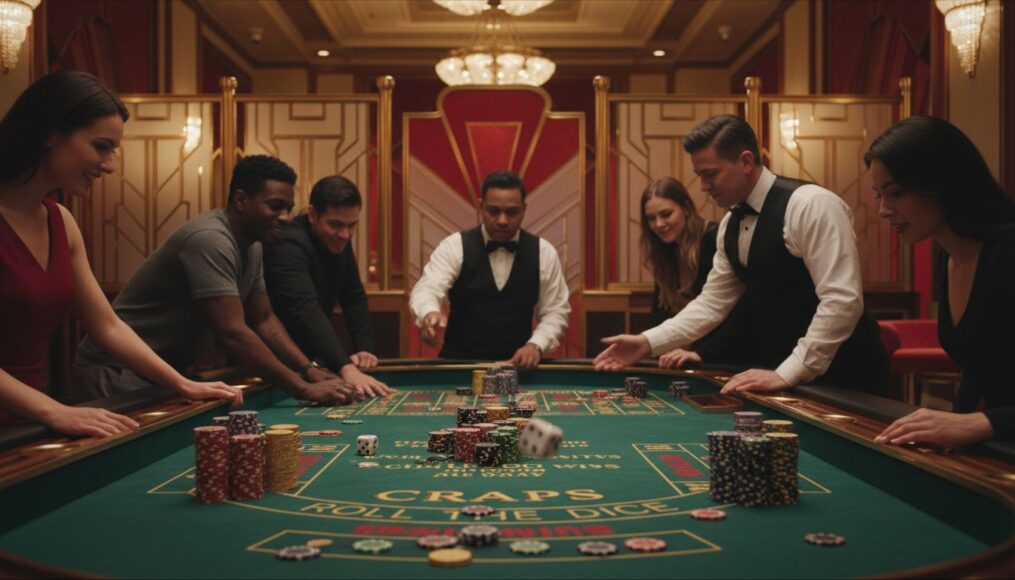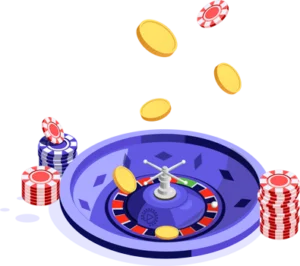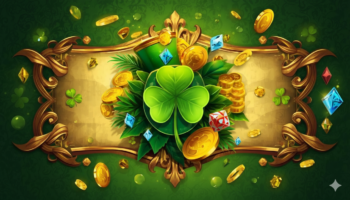Craps – short history about the casino game

Craps stands out as one of the most exhilarating and iconic dice games found in casinos worldwide. Its fast-paced action and communal betting experience have captivated players for centuries. At its core, Craps involves players wagering on the outcome of the roll of two dice, with a myriad of betting options adding to its complexity and thrill.
While the game is synonymous with the vibrant atmosphere of a casino floor, its evolution has seen it adapt to various settings. From casual “street craps” played informally, to the structured environment of traditional casinos, and now the accessible digital realm of online craps, the game continues to evolve. The online version, in particular, has brought this classic game to a new generation of players, often simplifying aspects for a smoother digital experience.

The Ancient Roots of a Modern Classic
The journey of Craps begins long before the bright lights of modern casinos. Many historians trace its lineage back to an ancient English game known as Hazard. This game is often credited to Sir William of Tyre, an English nobleman who supposedly invented it during the Crusades in the 12th century to entertain his knights. Evidence also suggests even earlier forms of dice games were played by Roman Legions, who would carve dice from animal bones, giving rise to the enduring phrase “throwing the bones.”
Hazard gained significant popularity throughout the Middle Ages in England, even earning a mention in Geoffrey Chaucer's renowned “Canterbury Tales.” By the late 17th century, it was a staple in burgeoning gambling establishments. The game eventually crossed the English Channel, capturing the attention of the French, who are believed to have adapted its name to “Crabs” or “Crapaud” (French for toad, possibly referring to the way players crouched over the dice).
Craps Arrives in America: A New Chapter
The exact path of Craps to American shores is a subject of historical debate, but its arrival is largely attributed to French colonists. It's widely believed that the game made its way south to Louisiana with French settlers who had lost the colony of Acadia (now Nova Scotia). There are also intriguing, albeit unconfirmed, whispers that a version of the game might have even arrived with early European settlers on the Mayflower.
The 19th century marked a pivotal period for Craps in America. African-American communities in the South played a significant role in developing and popularizing their own versions of the game, incorporating elements that would influence its modern form. A key figure in its American evolution was Bernard Xavier Philippe de Marigny de Mandeville, a wealthy young gambler from New Orleans. In 1805, de Marigny simplified the complex rules of Hazard, particularly by fixing the “main point” to seven, making the game more accessible and faster-paced.
John H. Winn: The Father of Modern Craps
The game underwent its most significant transformation in 1907, thanks to John H. Winn. Recognizing that unscrupulous casinos often used loaded dice to cheat players, Winn introduced a revolutionary change: the “Don't Pass” bet. This innovation allowed players to bet *against* the shooter, effectively neutralizing the advantage of unfair dice and ensuring a more equitable game. Winn also designed the modern table layout that we recognize today, solidifying his legacy as the “Father of Modern-Day Craps.”
With these crucial improvements, Craps became a fair and incredibly exciting game. Its popularity soared, especially after the legalization of gambling in Nevada in the 1930s. The communal energy, the thrill of players cheering on the shooter, and the chance for everyone to “throw the bones” cemented its status as a casino favourite.
Craps in the 21st Century: Online Accessibility
Today, Craps continues to be a cornerstone of the casino experience, both in brick-and-mortar establishments and, increasingly, in the digital world. The online casino industry has made this once-intimidating game accessible to a global audience. Players can now learn the ropes, understand betting strategies, and practice without the pressure of a live table, often through virtual casino games or live dealer versions.
While the online experience might not fully replicate the boisterous camaraderie of a physical Craps table, it offers unparalleled convenience and a fantastic way to engage with this historic game. For those interested in exploring the world of online casinos, including their diverse bonuses, extensive game libraries, and secure payment methods, resources like Casinoble Ireland provide comprehensive reviews. We also offer insights into sports betting sites for enthusiasts.
Most Recent News
Get the latest information








